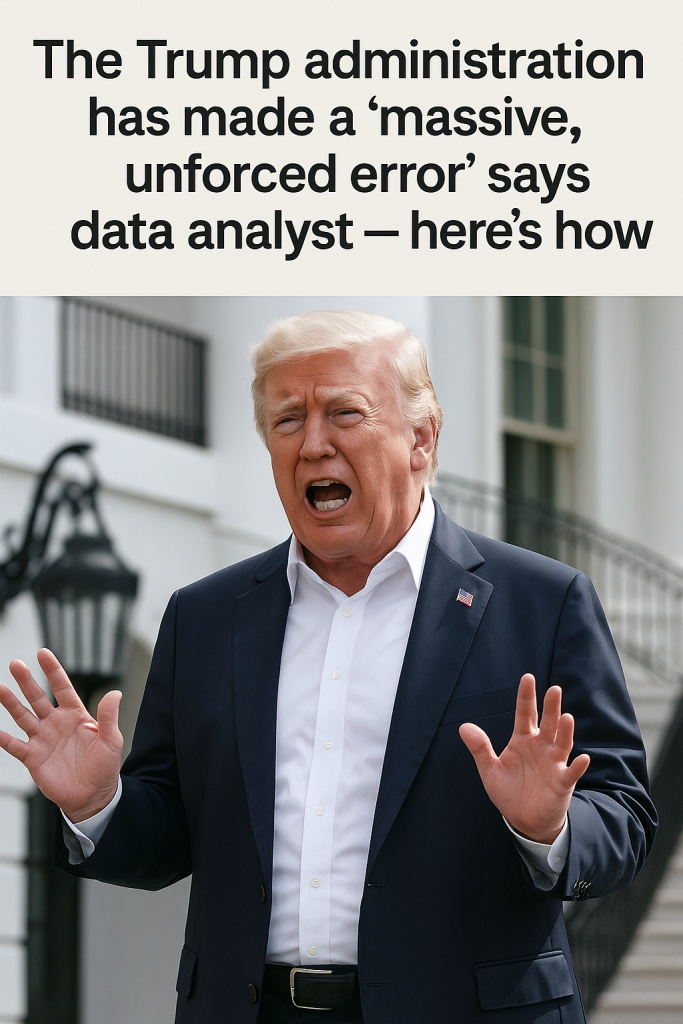The Trump administration’s strategy toward China, particularly the aggressive trade policies implemented during its tenure, has recently come under sharp criticism from leading data analysts. Experts characterize these moves as a “massive, unforced error” that not only backfired economically but also weakened America’s strategic positioning in the global market.
According to recent analyses, the administration’s decision to impose steep tariffs on Chinese imports starting in 2018, designed to curb what was perceived as unfair trade practices and intellectual property theft, ended up causing unintended consequences. These consequences manifested in disrupted supply chains, increased costs for American manufacturers, and inflationary pressures on consumers.
One prominent data analyst noted that while the tariffs were intended as a hardline approach to force China back to the negotiating table, the outcome was a “self-inflicted wound”. The analysis highlights that the tariffs hurt American companies dependent on Chinese components, leading to production delays and higher prices. Meanwhile, China shifted supply routes, diversified its trade partners, and accelerated efforts to develop independent technologies, blunting the impact of U.S. pressure.
This expert’s evaluation relies on extensive trade data and economic indicators over the past five years, showing that the trade deficit with China did not substantially improve despite aggressive tariffs. Furthermore, the data reveals a counterintuitive rise in prices of consumer goods and some raw materials in the U.S., contributing to inflation and economic uncertainty.
Beyond economics, the mistake lies in the missed opportunity for more strategic, collaborative engagement with China. Analysts argue that the hard trade stance fractured long-standing relationships and global cooperation mechanisms that are crucial in today’s interconnected world—covering areas such as technology standards, climate change, and supply chain resilience.
Data models indicate that alternative approaches could have yielded better results. Instead of broad tariffs, targeted measures focused on critical sectors, increased investment in domestic innovation, and alliances with global partners might have pressured China more effectively. Meanwhile, transparent data sharing and negotiations could have bolstered trust and compliance without the collateral economic damage seen.
While the Trump administration framed its policies as a way to “take back” economic advantage, data experts warn that these measures inadvertently accelerated China’s push for self-reliance and technological independence, shifting the global balance in unexpected ways.
As the 2024 political landscape evolves, this retrospective analysis invites policymakers to rethink trade and foreign economic strategies. It underscores the importance of data-driven decision making and nuanced diplomacy rather than confrontational tactics that risk broad economic fallout.
The “massive, unforced error” identified by analysts thus serves as a cautionary tale: in an era of complex global ties and rapid technological change, bold but poorly conceived economic warfare can undermine the very strength it aims to protect.



